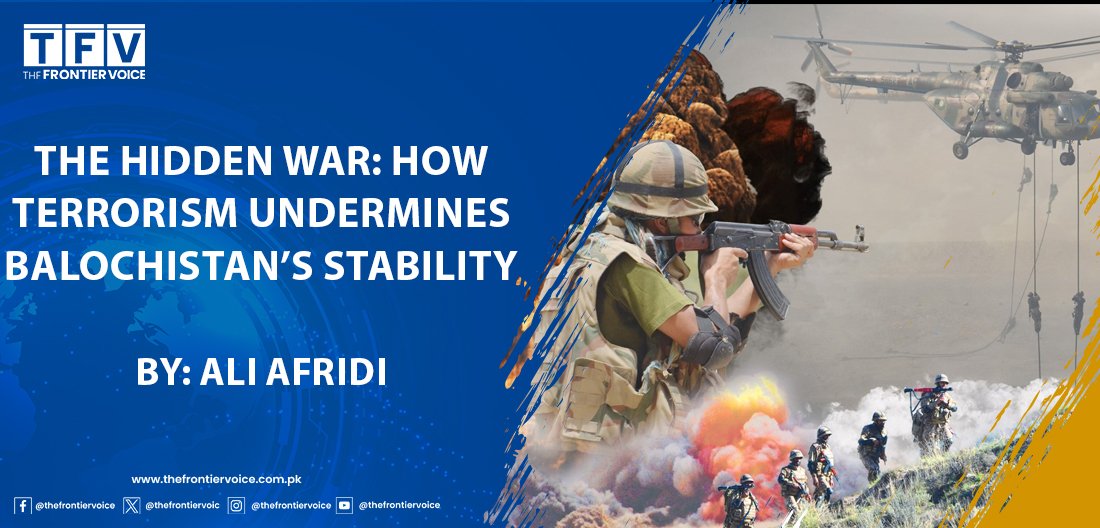POLITICS
The Hidden War: How Terrorism Undermines Balochistan’s Stability

By: Ali Afridi
The tragic events in Quetta have brought to light a troubling pattern: security personnel are increasingly being targeted by terrorists during off-duty travel. This vulnerability became heartbreakingly clear on November 9, when a suicide bombing at the Quetta Railway Station killed over two dozen security officers as they prepared to board the Jaffar Express. Civilians also lost their lives in the attack, and many others were injured. However, it’s evident the attackers’ primary focus was on the security personnel, whose pre-purchased train tickets made their movements all too predictable.
This attack underscores how strategically terrorists plan their assaults. They know exactly when security forces are at their most vulnerable during transitions between assignments, when their guard is naturally lowered. In this case, the suicide bomber faced no significant obstacles, and the Balochistan Liberation Army (BLA)’s Majeed Brigade claimed responsibility for the heinous act. Balochistan today is plagued by near-daily acts of terrorism, with attackers seemingly operating unchecked. Innocent civilians are paying the price, and the province has become a hotspot for violent insurgency. These relentless attacks not only cost lives but also erode the government’s authority, leaving the state struggling to maintain control.
Even with advanced technologies like drones at their disposal, security forces appear hesitant to use them against BLA strongholds in southwestern Balochistan. Meanwhile, similar tactics are reportedly employed in the northwest to counter the Tehreek-e-Taliban Pakistan (TTP). This inconsistency raises concerns, especially as instability in both regions sends a chilling message to potential foreign investors, including China, which has major stakes in Pakistan’s development projects.
Another critical issue is the gap between security forces and local intelligence networks. Reports suggest that some community members may be aiding groups like the BLA, further weakening counter-terrorism efforts. The provincial government’s detachment from the population worsens this problem. In a sparsely populated region like Balochistan, preventing coordinated attacks should be more manageable yet that’s not the reality on the ground.
Pakistan urgently needs to rethink its approach. Breaking these terrorist networks will require not just immediate action but also long-term solutions. Engaging local Baloch leaders and human rights groups could help address the grievances tied to land and resource disputes. Investigating possible foreign interference, including alleged Indian involvement, is also essential. Cooperation with Iran to neutralize BLA hideouts along the border could be a critical step in tightening security.
As the BLA ramps up its campaign, particularly against off-guard security forces, Pakistan must act decisively. Failure to respond could further demoralize its personnel and worsen the crisis. It’s clear that urgent, unified efforts are needed to prevent the situation from spiraling out of control.
